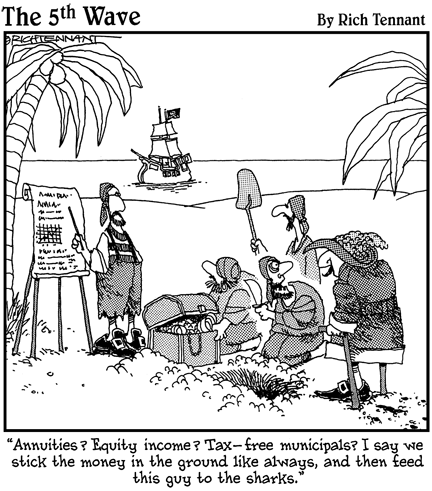Part V
Accounting for Advanced Intermediate Issues

In this part . . .
I cover more advanced accounting topics, building upon information your intermediate accounting course touches on in prior chapters. These chapters help you better understand related topics in your textbook and provide an introduction to the more complex discussions you’ll encounter if you decide to continue with advanced financial accounting courses.
For example, Chapter 17 talks about everyone’s favorite topic, income taxes. Since generally accepted accounting principles (GAAP) often differs from Internal Revenue Code (IRC), revenue and expense differences may arise between the two. You find out about both types of differences: temporary and permanent. You also get info on how to account for tax deferrals, which directly relate to temporary differences, and get the skinny on interperiod and intraperiod tax allocations.
Chapter 19 explains the two different types of leases, capital and operating, and tells you how to account for both. I approach this topic from the standpoint of both the lessee (the party doing the leasing) and the lessor (the party who owns the property the lessee is using). Specifically, I discuss operating, direct financing, and the more advanced topic of sale-type leases. Plus, you find out how to account for residual value, which is what the asset is worth when the lessor decides to ...
Get Intermediate Accounting For Dummies now with the O’Reilly learning platform.
O’Reilly members experience books, live events, courses curated by job role, and more from O’Reilly and nearly 200 top publishers.

